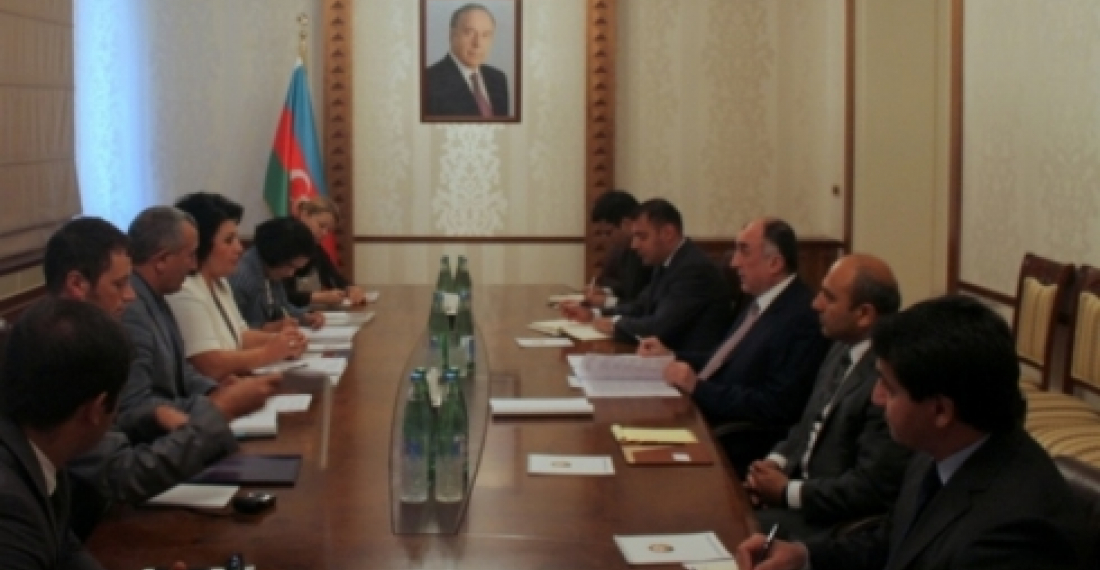"Azerbaijan is displeased with the work of the OSCE Minsk Group. We would have been satisified with their work if they were able to bring about the return of Azerbaijani territory occupied by Armenian military forces. But they have failed to achieve this". According to the website of the Ministry of Foreign Affairs of Azerbaijan this was stated by Azerbaijani Foreign Minister, Elmar Mammadyarov on Tuesday, 25 August, whilst meeting with the Council of Europe Parliamentary Assembly rapporteur Milika Markovic in Baku. Markovic is currently in Azerbaijan to prepare a report on the conditions of Azerbaijanis living in the Karabakh conflict zone.
The OSCE Minsk Group, co-chaired by France, Russia and the United States is mandated by the international community to mediate between the sides in order to find a peaceful solutiuon to the conflict over Nagorno-Karabakh involving Armenia and Azerbaijan. The Group has been in existence since 1992, but has made little headway in finding a solution to the conflict
Commonspace.eu political editor, commenting on the remarks of the Azerbaijani Foreign Minister, said that "whilst there has in the past been criticism of the Minsk Group and of the co-Chair in Azerbaijan, Foreign Minister Mammadyarov, who is the primary point of contact between the mediators and the Azerbaijani government, has usually stopped short of public criticism. The public criticism by the Foreign Minister seems to bring relations between Azerbaijan and the OSCE Minsk Group co-Chair to a very low point. In contrast, in Armenia the Minsk group is hailed as the only format and mechanism that can bring about a resolution of the conflict and any suggestion of changing the format in any way is always categorically dismissed. This situation adds further pressure on the Minsk Group whose approach to resolving the conflict has been under increasing scrutiny in the wider international community".
source; commonspace.eu
photo: Azerbaijani Foreign Minister Mammadyarov meeting the PACE rapporteur Milca Markovic in Baku on Tuesday, 25th August 2015 (picture courtesy of the Minisry of Foreign Affairs of Azerbaijan).







